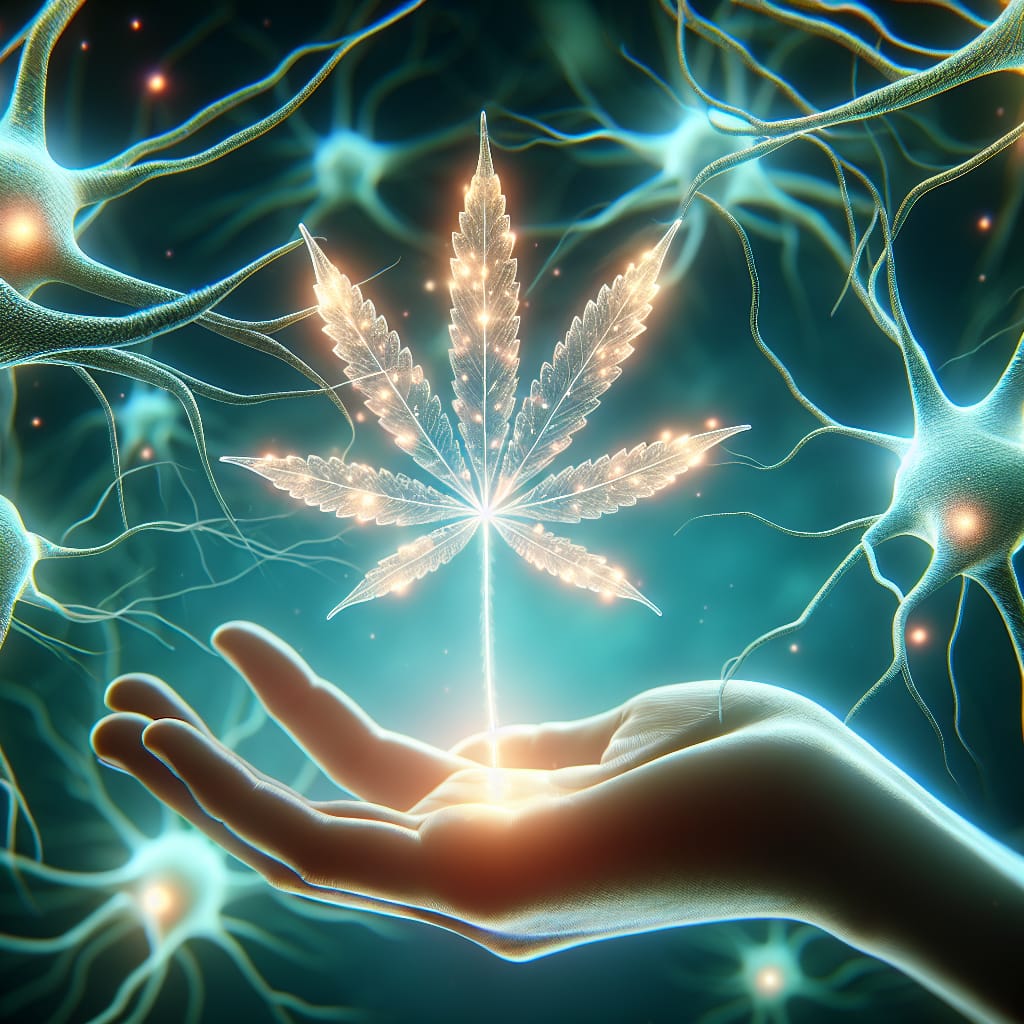Curious about the potential benefits of CBD for epilepsy? Look no further! In this article, we’ll explore the effectiveness of CBD as a treatment option for epilepsy, delving into the research and providing you with a comprehensive understanding of its potential impact on seizure control. Whether you’re seeking relief for yourself or a loved one, we’re here to shed light on this intriguing topic and help you make an informed decision. So, let’s dive into the world of CBD and epilepsy treatment together!
Introduction
Epilepsy is a neurological disorder characterized by recurring seizures, and it affects millions of people worldwide. If you or someone you know is living with epilepsy, you may be wondering if there are any alternative treatments available to help manage the condition. One such treatment that has gained significant attention is CBD, or cannabidiol. In this comprehensive article, we will explore the potential of CBD in treating epilepsy, its mechanism of action, research findings, safety considerations, dosage and administration guidelines, legal and regulatory aspects, and ultimately, its effectiveness in managing seizures.
Understanding Epilepsy
Definition and types of epilepsy
Epilepsy is a chronic disorder that affects the brain’s electrical activity, leading to seizures. Seizures occur when there is a sudden, abnormal burst of electrical activity in the brain. There are different types of epilepsy, each classified based on the specific patterns and triggers of seizures. These types include focal onset seizures, generalized onset seizures, and unknown onset seizures. It is essential to understand the type of epilepsy one has to determine the most suitable treatment approach.
Causes of epilepsy
The causes of epilepsy can vary from person to person. Some individuals may develop epilepsy due to genetic factors or brain abnormalities present at birth. Others may develop epilepsy as a result of head injuries, strokes, brain tumors, or infections such as meningitis. Understanding the underlying cause of epilepsy can help guide treatment decisions and optimize outcomes.
Current treatments for epilepsy
Currently, the standard treatments for epilepsy involve the use of antiepileptic drugs (AEDs), which are designed to help reduce seizures. AEDs work by stabilizing the abnormal electrical activity in the brain. However, some individuals with epilepsy may experience incomplete seizure control or intolerable side effects from these medications. This has led researchers and patients alike to explore alternative treatment options, such as CBD.

What is CBD?
Definition of CBD
CBD, or cannabidiol, is one of the many active compounds found in the cannabis plant. Unlike THC (delta-9-tetrahydrocannabinol), another prominent compound in cannabis, CBD does not produce psychoactive effects or the sensation of being “high.” Instead, CBD is believed to interact with various receptors in the body, potentially exerting therapeutic effects.
How CBD is different from THC
While CBD and THC both come from the cannabis plant, they have distinct properties. CBD is non-intoxicating and does not cause the “euphoric” or psychoactive effects typically associated with cannabis use. On the other hand, THC is the compound responsible for marijuana’s psychoactive properties and is classified as a controlled substance in many countries. It is crucial to understand this difference, as it affects the legal status and potential use of CBD as a treatment option.
Legal status of CBD
The legal status of CBD varies depending on where you live. In some countries, CBD extracted from hemp (a variety of cannabis with low THC content) is legal, while CBD extracted from marijuana remains highly regulated or illegal. In other regions, CBD from both sources may be available for medical or recreational use. It is essential to research and understand the laws and regulations in your specific location before considering CBD as a treatment option for epilepsy.
Mechanism of Action
How CBD interacts with the body
CBD interacts with the body’s endocannabinoid system (ECS), a complex network of receptors and compounds involved in regulating various physiological processes. The ECS is responsible for maintaining homeostasis, or balance, in the body. CBD is thought to modulate the activity of certain receptors within the ECS, potentially influencing the brain’s electrical activity and reducing seizure activity.
CBD’s potential anti-seizure effects
Research has shown that CBD may have anti-seizure properties, although the exact mechanisms are not yet fully understood. Studies suggest that CBD may affect the release of certain neurotransmitters, reduce inflammation in the brain, and modulate calcium levels, all of which can contribute to its potential anti-seizure effects. However, more research is needed to establish a clear understanding of CBD’s mechanism of action in the context of epilepsy.

Research on CBD for Epilepsy
Overview of clinical trials
In recent years, there has been a growing body of research investigating the effectiveness of CBD in treating epilepsy. Clinical trials, involving both children and adults with various types of epilepsy, have explored the safety and efficacy of CBD as an adjunct therapy or as a standalone treatment. These trials have provided valuable insights into the potential benefits of CBD for seizure control.
FDA-approved CBD medication for epilepsy
In 2018, the United States Food and Drug Administration (FDA) approved the first CBD-based medication specifically for the treatment of two rare forms of epilepsy, Lennox-Gastaut syndrome and Dravet syndrome. This medication, known as Epidiolex, contains highly purified CBD and has been shown to significantly reduce seizure frequency in individuals with these severe forms of epilepsy.
Effectiveness of CBD in reducing seizures
Research findings suggest that CBD may have a beneficial effect on seizures for some individuals with epilepsy. In studies involving individuals with treatment-resistant epilepsy, CBD treatment has been associated with a significant reduction in seizure frequency. However, the response to CBD can vary from person to person, and not all individuals may experience the same degree of seizure control. It is important to consult with a healthcare professional to determine if CBD is a suitable treatment option for your specific case.
Safety and Side Effects
Common side effects of CBD
While CBD is generally considered safe, it is not without potential side effects. Some individuals may experience mild side effects, including drowsiness, fatigue, dry mouth, and gastrointestinal discomfort. These side effects are typically well-tolerated and tend to subside with continued use or adjustment of dosage. However, it is crucial to monitor for any adverse effects and consult with a healthcare professional if they persist or worsen.
Potential drug interactions with CBD
CBD has the potential to interact with certain medications, including those commonly used to treat epilepsy. This is because CBD can inhibit certain enzymes responsible for metabolizing drugs, leading to altered drug levels in the body. It is important to discuss the use of CBD with your healthcare provider to evaluate any potential drug interactions and adjust medication dosages accordingly.

Dosage and Administration
Recommended CBD dosages for epilepsy
Determining the optimal CBD dosage for epilepsy can be challenging, as it depends on various factors such as the individual’s age, weight, and the specific type of epilepsy. It is recommended to start with a low dosage and gradually increase it over time while closely monitoring seizure control and side effects. Working with a knowledgeable healthcare professional experienced in CBD treatment for epilepsy is essential in guiding dosage adjustments and ensuring safety.
Different forms of CBD administration
CBD is available in various forms, including oils, capsules, edibles, and topical creams. Each form has its own advantages and considerations. Oral CBD products, such as oils or capsules, are commonly used and allow for precise dosage control. Edibles provide a discreet option but may have delayed onset and varying absorption rates. Topical creams are primarily used for localized pain and inflammation, rather than seizure control. Choosing the appropriate form of CBD administration depends on individual preferences, lifestyle, and treatment goals.
Factors to Consider
Patient factors to consider
When considering CBD as a treatment option for epilepsy, it is crucial to consider various patient-specific factors. These factors can include the individual’s overall health, medical history, current medications, and personal preferences. Additionally, it is important to have realistic expectations and understand that CBD may not be effective for everyone or may require a period of trial and adjustment to achieve optimal results.
Different types of epilepsy and CBD effectiveness
The effectiveness of CBD in reducing seizures can vary depending on the type of epilepsy. While some individuals with certain types of epilepsy may experience significant seizure control with CBD, others may not respond as effectively. It is recommended to consult with a healthcare professional with expertise in epilepsy and CBD treatment to determine the potential effectiveness of CBD for a specific type of epilepsy.

Legal and Regulatory Considerations
State and federal laws regarding CBD use for epilepsy
Laws and regulations regarding the use of CBD for epilepsy can vary both at the state and federal levels. In some countries or states, CBD may be legal for medical use, while in others, it may be available only under specific circumstances or strictly prohibited. It is crucial to be aware of the legal landscape in your jurisdiction and ensure compliance with all applicable laws and regulations to access CBD safely and legally.
Challenges and limitations in accessing CBD
Even in regions where CBD is legal, accessing high-quality CBD products for epilepsy treatment can present challenges. The lack of standardized regulations and oversight can result in varying product quality, inconsistent dosages, and inaccurate labeling. It is important to source CBD products from reputable manufacturers who adhere to stringent quality control measures and provide third-party lab testing results to ensure safety and efficacy.
Conclusion
In conclusion, CBD shows promise as a potential treatment option for individuals living with epilepsy. Research findings indicate its potential effectiveness in reducing seizures and improving seizure control, particularly in certain types of epilepsy. However, it is crucial to consult with a healthcare professional experienced in CBD treatment for epilepsy to evaluate its suitability for your specific case, determine appropriate dosages and administration methods, and navigate legal and regulatory considerations. As research on CBD for epilepsy continues to evolve, it holds the potential to offer new insights and possibilities for individuals seeking improved seizure management and quality of life.

